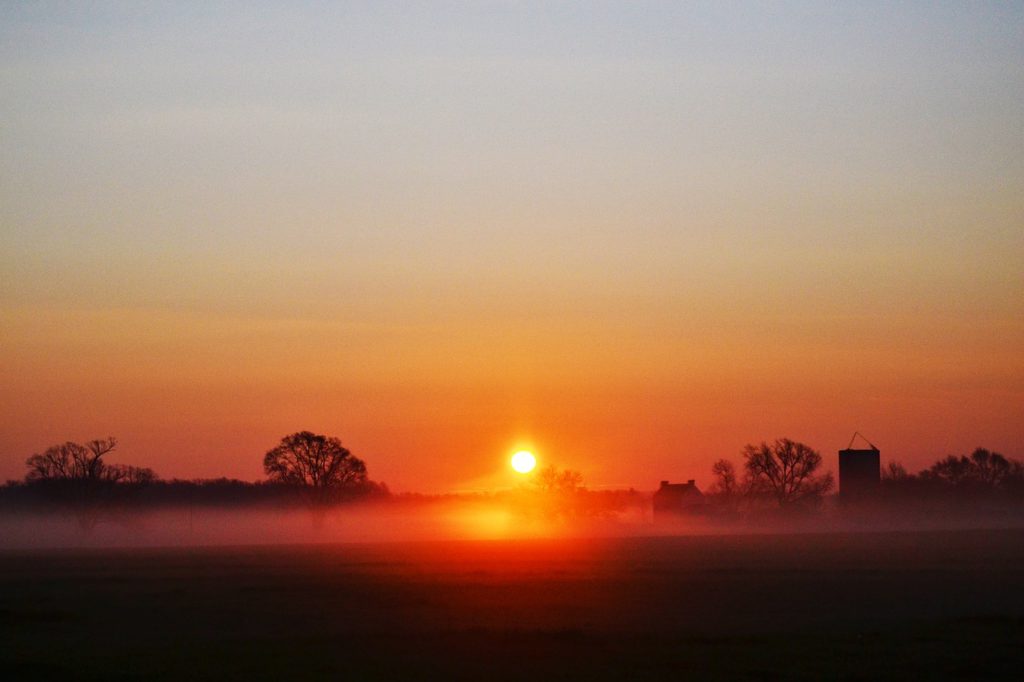How to start homesteading in Delaware
 Ssumur24 from Pixabay
Ssumur24 from PixabayKnown as “The First State,” because it ratified the U.S. Constitution first, Delaware is located on a peninsula bordered by water on three sides (the Atlantic Ocean, Delaware River and Delaware Bay). It’s the second smallest state (behind Rhode Island).
Despite being small, Delaware is densely populated. It has the dubious honor of being both the sixth least populated state and the sixth most densely populated state — so while there are relatively fewer residents of Delaware, they are crammed in pretty tight.
If this small state interests you, here’s how to start homesteading in Delaware.
Buying farmland in Delaware
Despite its small size, there are many farms in Delaware. According to the U.S. Department of Agriculture, the average cost per acre in 2017 was $8,400 for farm real estate, including land and buildings, in Delaware. The average cost per acre for cropland in 2017 was $8,100.
According to U.S. Census estimates from 2012, there were 508,654 acres of farmland and 2,457 farms in Delaware. The average farm size was 207 acres.
Growing crops in Delaware
The 2012 USDA Plant Hardiness Zone Map places the entire state of Delaware in zone 7, with a minimal distinction of part of the state being in zone 7a and part being in zone 7b.
According to the University of Delaware Cooperative Extension, Delaware has two distinct growing environments. The piedmont covers about 5 percent of the state and features low rolling hills and steeply incised stream valleys. The soil there is rich and loamy but the slopes can be eroded and stony. The majority of the state — 95 percent of it — is coastal plain with slow-moving streams and extensive tidal estuaries. The soil there is sandy. Some areas drain very well. Others — like the tidal marsh areas — don’t drain well at all.
A variety of vegetables, including beans, beets, cauliflower, corn, peppers and tomatoes, grow well in Delaware.
Delaware has many regulations relating to farming in the state. The Delaware Soybean Board has a fact sheet that breaks down who oversees what and which crops, farms or livestock the regulations apply to.
Raising animals in Delaware
Delaware is not a free-range state. Livestock must be kept in enclosed areas. Allowing livestock to run freely will result in a penalty of $25 to $200 per offense.
The Poultry and Animal Health Section of the Delaware Department of Agriculture oversees the overall health and welfare of livestock in the state. They ensure that livestock is cared for, oversee disease concerns (including rabies) and help when livestock get loose.
Cattle, goats, sheep, horses, swine, poultry and other birds are all raised in Delaware. Poultry flocks, including backyard flocks, must be registered with the state’s Department of Agriculture.
Selling food in Delaware
There is no permit or license required for selling produce at a farmers market in Delaware. However, roadside stands and other sales may be subject to local (municipal or county) permitting requirements as well as parking requirements by the Department of Transportation.
For non-potentially hazardous prepared foods like baked goods and jams, the state does require permitting for farm-based in-house kitchens and their operators. The Cottage Food Establishment (CFE) Program within the Health Systems Protection’s Office of Food Protection oversees the regulations for this which can include all preparers taking a special safety class, registering with the state and more.
Those interested in selling chicken eggs should contact the state Department of Agriculture for information about the extensive state requirements.
Delaware organizations for farmers
- University of Delaware Cooperative Extension
- Delaware Farm Bureau
- Delaware Soybean Board
- Fruit and Vegetable Growers Association of Delaware
- Delaware Tree Farm Committee
- Delaware Wineries Association
- Delaware Pork Producers
- Delaware Beef Advisory Board
- Delaware Beekeepers Association
- Delaware Christmas Tree Growers Association
- Delaware Dairy Princess Committee
How difficult is it to start homesteading in Delaware?
With a challenging growing landscape and many rules and regulations, homesteading in Delaware comes with some level of challenge and difficulty. If you have your heart set on it, go for it. But if you are looking for a place where you can stretch your homesteading wings, Delaware probably isn’t it.
